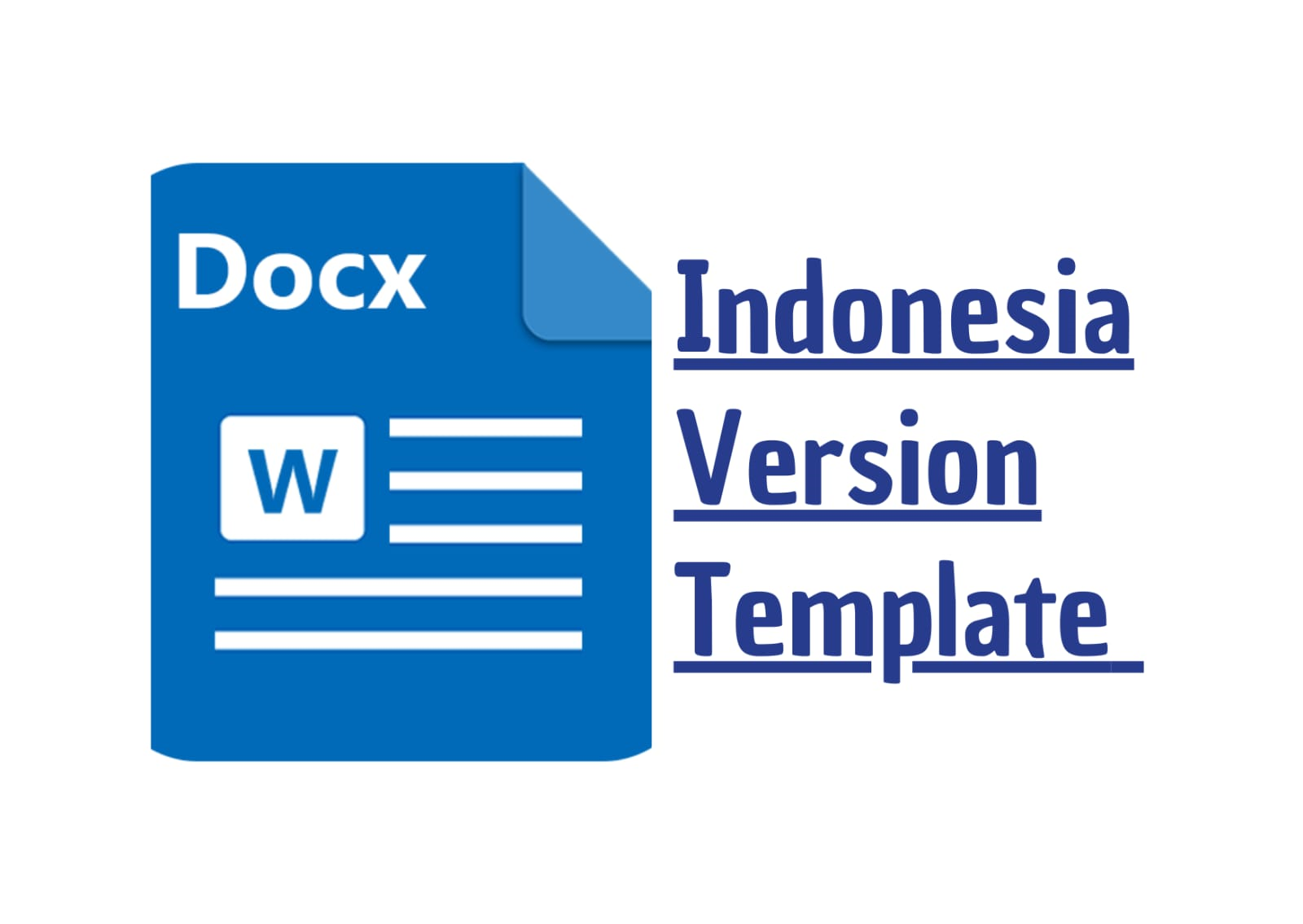Pengaruh Dukungan Keluarga dan Efikasi Diri Terhadap Pengambilan Keputusan Karir Siswa SMKN di Kota Makassar
DOI:
https://doi.org/10.56799/jim.v3i8.4174Keywords:
Dukungan Keluarga, Efikasi diri, Pengambilan keputusan karirAbstract
Penelitian ini bertujuan untuk mengetahui pengaruh dukungan keluarga terhadap pengambilan keputusan karir, pengaruh efikasi diri terhadap pengambilan keputusan karir, dan pengaruh dukungan keluarga dan efikasi diri secara bersama-sama terhadap pengambilan keputusan karir siswa SMKN di kota Makassar. Penelitian ini menggunakan pendekatan kuantitatif. Lokasi penelitian dilakukan di SMKN kota Makassar, dengan sampel berjumlah 304 siswa. Pengambilan sampel pada penelitian ini menggunakan multistage cluster random sampling. Instrumen pengumpulan data menggunakan tiga (3) skala yakni skala dukungan keluarga, efikasi diri dan pengambilan keputusan karir. Teknik analisis data menggunakan analisis statistik deskriptif dan analisis regresi berganda dengan menggunakan software SPSS versi 26. Hasil penelitian menunjukkan bahwa: (1) ada pengaruh positif signifikan dukungan keluarga terhadap pengambilan keputusan karir siswa SMKN di kota Makassar (r= 0.219, p= 0.000), (2 ) ada pengaruh positif signifikan efikasi diri terhadap pengambilan keputusan karir siswa SMKN di kota Makassar (r= 0.418, p= 0.000), dan (3) ada pengaruh dukungan keluarga dan efikasi diri secara bersama-sama terhadap pengambilan keputusan karir siswa SMKN di kota Makassar (r= 0.475, p= 0.000). Dengan demikian, dukungan keluarga dan efikasi diri dapat menjadi prediktor yang kuat terhadap pengambilan keputusan karir siswa SMKN di kota Makassar.
Downloads
References
Abdullah, S. M. (2023). The meta-analysis study: career decision making self efficacy and career maturity. Insight: Jurnal Ilmiah Psikologi, 25(1).
Ahkam, M. A. (2004). Hubungan Antara Efikasi Diri Dan Reguligiusitas Dengan Kemampuan Penyesuaian Diri Mahasiswa. Tesis. Program Pascasarjana Universitas Gadjah Mada Yogyakarta.
Alwisol. (2009). Psikologi Kepribadian Edisi Revisi. Malang: UMM Press.Johnson, R, B., & Crhistensen, L. (2014). Educational Research Quantitative, Qualitative, and Mixed Approaches. United States of America: SAGE Publications, Inc.
Ananda, Y. R. (2017). Hubungan Kematangan Emosi dengan Pengambilan Keputusan Karir pada Siswa Kelas XII SMA. Indonesian Journal of Guidance and Counseling : Theory and Application, 6(2), 45–51. https://doi.org/https://doi.org/10.15294/i jgc.v6i2.16745
Argyropoulou, E. P., Sidiropolou -Dimakakou, D., & Besevegis, E. G. (2007). Generalized self-efficacy, coping, career indecision, and vocational choices of senior high school students in Greece. Journal of Career Development, 33(4), 316 -337. https://dx.doi.org/10.1177/0894845307300412
Arikunto, S. (2019). Prosedur Penelitian. Jakarta: Rineka Cipta.
Azwar, S. 2015. Reliabilitas dan Validitas (Edisi 4). . Yogyakarta: Pustaka Pelajar.
Azwar, Saifuddin. 2017. Metode Penelitian Psikologi (Edisi II). Yogyakarta: Pustaka Pelajar.
Bandura, A.(1997). Self Effifacy:The Exercise of control. New York: Freeman.
Brown, D. (2002). Career Choice and Development. San Francisco: Jossey-Bass.
Brown, S. D. (2010). Career guidance and drop-out prevention: Perspectives from social cognitive career theory. Invited address at the annual conference of the Danish Vocational Guidance Association, Nyborg, Denmark. Retrieved from
Darmasaputro, A., & Gunawan, W. (2018). Hubungan Efikasi Diri Pengambilan Keputusan Karier dan Pengambilan Keputusan Karier pada Siswa SMA. Jurnal Psikologi, 14 (1), 1-11. Retrieved from https/ukrida.ac.id.
Dewi, R. (2017). Hubungan Efikasi Diri Dan Dukungan Sosial Keluarga Dengan Kematangan Karir Pada Mahasiswa Keperawatan STIKes Muhammadiyah Lhokseumawe. Analitika, Vol. 9 (1) .
Du, B., Yu, X., Luo, N., & Liu, X. (2022). The effect of core self-evaluations on career adaptability: The mediating role of protean career attitudes and the moderating role of meritocratic beliefs. Frontiers in Psychology, 13, 1000615.
Dysinger, W. S. (1950). Maturation and vocational guidance. Occupations, 29, 198 –201.
Edi Purwanta. (2013). Dukungan Keluarga Orangtua dalam Karier terhadap Perilaku Eksplorasi Karier siswa SLTP. Jurnal TEKNODIKA, volume 10 nomor 2 tahun 2012. Hal. 127-140.
Firdaus, W., & Arjanggi, R. (2020). Self-efficacy and career decision making difficulties in senior high school students. Indigenous: Jurnal Ilmiah Psikologi, 5 (2), 141–150.
Flores, L. Y., & O’Brien, K. M. (2002). The career development of Mexican American adolescent women: A test of social cognitive theory. Journal of Counseling Psychology, 49, 14–27.
Fouad, N. A., Cotter, E. W., Fitzpatrick, M. E., Kantamneni, N., Carter, L., & Bernfeld, S. (2010). Development and validation of the family influence scale. Journal of Career Assessment, 18, 276–291. doi: 10.1177/ 1069072710364793
Gati, I., & Levin, N. (2015). Making better career decisions. In P. J. Hartung, M. L. Savickas, & W. B. Walsh (Eds.), APA handbook of career intervention, Volume 2: Applications. (pp. 193 –207). Washington, DC, US: American Psychological Association. https://doi.org/10.1037/14439 -015
Guay, F., Ratelle, C. F., Senécal, C., Larose, S., & Deschênes, A. (2006). Distinguishing Developmental From Chronic Career Indecision: Self- Efficacy, Autonomy, and Social Support. Journal of Career Assessment, 14(2), 235 –251. https://doi.org/10.1177/1069072705283975
Gushue, G. V., & Whitson, M. L. (2006). The relationship among support, ethnic identity, career decision self-efficacy, and outcome expectations in African American high school students. Journal of Career Development, 33, 112– 124.
Gushue, G. V., Scanlan, K. R. L., Pantzer, K. M., & Clarke, C. P. (2006). The relationship of career decision-making self-efficacy, vocational identity, and career exploration behavior in African American high school students. Journal of Career Development, 33, 19–28.
Gysbers, N. C Dan Patricia H. (2017). Developing And Managing Your School Guidance And Counseling. Asca. Lee, J. W. Rojewski and R. B. Hill, Classifying Korean adolescents' career preparedness. International Journal for Educational and Vocational Guidance, 13(1), 2013, 25–45.
Hacker, J., Carr, A., Abrams, M., & Brown, S. D. (2013). Development of the Career Indecision Profile. Journal of Career Assessment, 21(1), 32 –41. https://doi.org/10.1177/1069072712453832
Hartono. (2016). Bimbingan Karier. Jakarta: PT Fajar Interpratama Mandiri.
Hasanah, A. N. (2018). Pengaruh kecerdasan emosi dan dukungan keluarga terhadap kesulitan pengambilan keputusan karir pada remaja di Jakarta (Bachelor's thesis, Jakarta: Fakultas Psikologi UIN Syarif Hidayatullah).
http://vejledning.net/Sider/Kurser%20&%20Konferencer/Fra%20smoerek ande%20til%20elektronisk%20fodlaenke/StevenBrowntalk_Nyborg2010.p df
Hurlock, Elizabeth, B. (1997). Psikologi perkembangan: Suatu pendekatan sepanjang rentang kehidupan. Jakarta: Erlangga.
Istifarani, F. (2016). Pengaruh dukungan keluarga terhadap pengambilan keputusan karir siswa kelas x di SMK negeri 1 Depok. Jurnal Riset Mahasiswa Bimbingan Dan Konseling, 5(5).
Jannah, M. (2016). Remaja dan tugas-tugas perkembangan dalam islam. Jurnal Psikoislamedia Vol.I,2-4.Retrievedfrom https://doi.org/10.22373/psikoislamedia.v1i1.1493
Kenny, M. E., Blustein, D. L., Chaves, A., Grossman, J. M., & Gallagher, L. A. (2003). The role of perceived barriers and relational support in the educational and vocational lives of urban high school students. Journal of Counseling Psychology, 50, 142–155
Koçak, O., Ak, N., Erdem, S. S., Sinan, M., Younis, M. Z., & Erdoğan, A. (2021). The role of family influence and academic satisfaction on career decision-making self-efficacy and happiness. International journal of environmental research and public health, 18(11), 5919.
Komara, I. B. (2016). Hubungan antara Kepercayaan Diri dengan Prestasi Belajar dan Perencanaan Karir Siswa. PSIKOPEDAGOGIA, 5(1), 33–42. https://doi.org/http://dx.doi.org/10.1292 8/psikopedagogia.v5i1.4474
Kulcsár, V., Dobrean, A., & Gati, I. (2020). Challenges and difficulties in career decision making: Their causes, and their effects on the process and the decision. Journal of Vocational Behavior, 116. https://doi.org/10.1016/j.jvb.2019.103346
Kuncoro, M. (2011). Metode kuantitatif : Teori dan aplikasi untuk bisnis dan ekonomi edisi ke empat. Yogyakarta : Sekolah Tinggi Ilmu Manajemen YKPN.
Lent, R. W., & Brown, S. D. (2006). On conceptualizing and assessing social cognitive constructs in career research: A measurement guide. Journal of Career Assessment, 14, 12–35.
Lent, R. W., & Brown, S. D. (2013). Social cognitive model of career self- management: Toward a unifying view of adaptive career behavior across the life span. Journal of Counseling Psychology, 60(4), 557 –568. https://doi.org/10.1037/a0033446
Lent, R. W., Ezeofor, I., Morrison, M. A., Penn, L. T., & Ireland, G. W. (2016). Applying the social cognitive model of career self-management to career exploration and decision -making. Journal of Vocational Behavior, 93, 47–57. https://doi.org/10.1016/J.JVB.2015.12.007
Leong, F. T. L. (2008). Encyclopedia of Counseling. Sage Publications.
Li, S., Pan, Q., & Nie, Y. (2023). The relationship between parental career-related factors and adolescents’ ambivalence in career decision-making: A longitudinal mediation study. Journal of Career Assessment, 31(2), 262-281.
Liu, X., Zhang, X., Dang, Y., & Gao, W. (2023). Career Education Skills and Career Adaptability among College students in China: the mediating role of Career decision-making self-efficacy. Behavioral Sciences, 13(9), 780.
Mitchell L.K & Krumboltz J.D. (1987). The effects of cognitive restructuring and decision-making training on career Indecision.Journal of Counseling and Development. Vol 66. Retrieved from https://doi.org/10.1002/j.1556- 6676.1987.tb00839.x
Nugroho, R.E.(2013). Peningkatan kemampuan pengambilan keputusan karir melalui metode gyroscope pada siswa kelas XII di SMA negeri 1 cawas.E-Skripsi.
Osipow, S. H. (1999). Assessing career indecision. Journal of Vocational Behavior, 55(1), 147 –154.
Osipow, S. H., Carney, C. G., & Barak, A. (1976). A scale of educational - vocational undecidedness: A typological approach. Journal of Vocational Behavior, 9(2), 233 – 243.
Paa, H. K., & McWhirter, E. H. (2000). Perceived influences on high school students’ current career expectations. The Career Development Quarterly, 49, 29–44.
Peterson, N. L. (2014). Cognitive information processing in Career development, employment, and disability in rehabilitation from theory to practice first edition. Springer Publishing.
Putri, N. (2018). Angka siswa yang salah pilih jurusan masih tinggi. Retrieved September 10, 2019, from http://www.skystarventures.com/youthma nual- angka-siswa-yang-salah-pilihjurusan-masih-tinggi/
Raymund, P., Garcia, J. M., Lloyd, S., Restubog, D., Toledano, L. S., Tolentino, L. R., & Rafferty, A. E. (2012). Differential moderating effects of student- and parent- reated support in the relationship between learning goal orientation and career decision-making self-efficacy. Journal of Career Assessment, 20, 22–33
Reddan, G. (2015). Enhancing Students' Self-Efficacy in Making Positive Career Decisions. Asia-Pacific Journal of Cooperative Education, 16(4), 291-300.
Robbins, S., Morrill, W., & Boggs, K. (1987). The construction and validation of the Career Factors Inventory. Unpublished Manuscript. Virgina Commonwealth University: Richmond.
Saka, N., & Gati, I. (2007). Emotional and personality -related aspects of persistent career decision -making difficulties. Journal of Vocational Behavior, 71(3), 340 –358. https://doi.org/10.1016/J.JVB.2007.08.003
Salwani, A., & Cahyawulan, W. (2022). The relationship between family social support and self-efficacy in career decision-making of final year university students. ENLIGHTEN: Jurnal Bimbingan Konseling Islam, 5(1), 25-36.
Sandra, E., & Mularsih, H. (2021, August). The Role of Self-Efficacy in Career Decision Making Among Graduated Students from Vocational High Schools in Jakarta. In International Conference on Economics, Business, Social, and Humanities (ICEBSH 2021) (pp. 1064-1068). Atlantis Press.
Santos, P. J. (2001). Predictors of Generalized Indecision Among Portuguese Secondary School Students. Journal of Career Assessment, 9(4), 381 –396.
Santrock, J. W. (2012). Life-Span Development Edisi Ketigabelas Jilid I. Jakarta: Erlangga.
Sekaran, U., & Bougie, R. (2009). Metode penelitian untuk bisnis : Sebuah keterampilan pendekatan bangunan edisi kelima. Chichester : John Wiley & Sons.
Sharf, R. S. (2010). Applying career development theory to counseling. Fifth edition USA: Brooks/Cole Cencage Learning.
Song, Y., Mu, F., Zhang, J., & Fu, M. (2022). The Relationships Between Career-Related Emotional Support From Parents and Teachers and Career Adaptability. Frontiers in Psychology, 13, 823333.
Sugiyono (2019). Metode Penelitian Kuantitatif, Kualitatif, dan R&D. Bandung : CV Alfabeta.
Sukardi, Dewa Ketut dan Desak P.E. Nila Kusmawati. (2008). Proses bimbingan dan konseling di sekolah, Jakarta: Rineka cipta.
Swanson, J. L., & Gore, P. A., Jr. (2000). Advances in vocational psychology theory and research. In S. D. Brown & R. W. Lent (Eds.), Handbook of counseling psychology (3rd ed., pp. 233–269). New York, NY: Wiley
Turner, S. L., Steward, J. C., & Lapan, R. T. (2004). Family factors associated with sixth-grade adolescents’ math and science career interests. Career Development Quarterly, 53, 41–52.
Vidal -Brown, S. A., & Thompson, B. (2001). The Career Assessment Diagnostic Inventory: A New Career Indecision Assessment Tool. Journal of Career Assessment, 9(2), 185 – 202. https://doi.org/10.1177/106907270100900206
Wakhinuddin. (2020). Perkembangan Karier Konsep dan Implikasinya. Padang: UNP Press.
Zhang, J., Yuen, M., & Chen, G. (2021). Career‐related parental support, vocational identity, and career adaptability: Interrelationships and gender Differences. The Career Development Quarterly, 69(2), 130-144.
Downloads
Published
How to Cite
Issue
Section
License
Copyright (c) 2024 Muhammad Akbar, Ahmad Ahmad, Ahmad Yasser

This work is licensed under a Creative Commons Attribution-ShareAlike 4.0 International License.




















